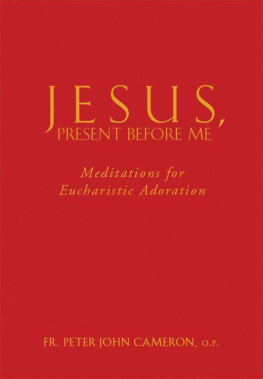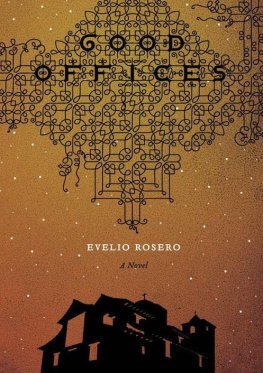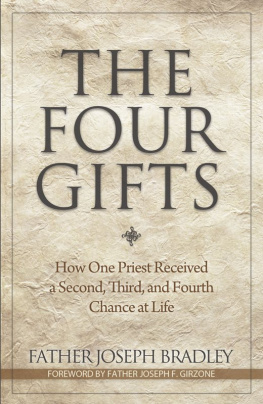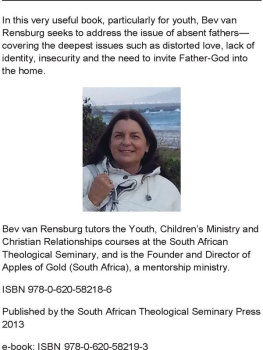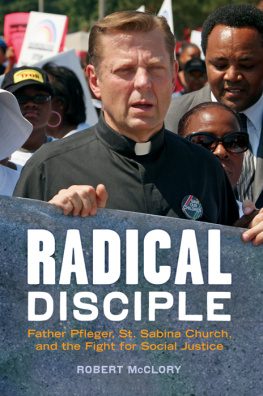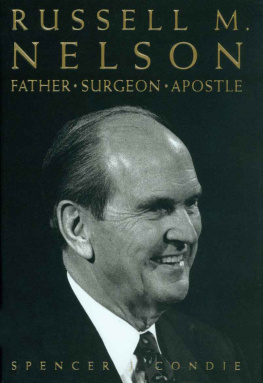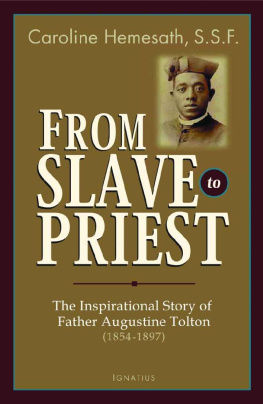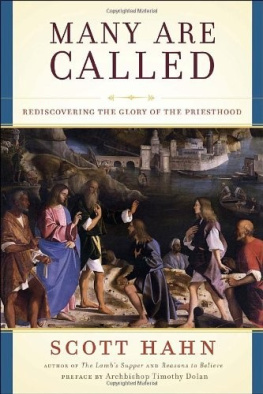He Was Our Father
A play about Father Michael J. McGivney
Founder of the Knights of Columbus
by Peter John Cameron, O.P.
HE WAS OUR FATHER
2013, Peter John Cameron, O.P.
all rights reserved
ISBN: 1483904814
ISBN-13: 978-1483904814
The stage performance rights for He Was Our Father are controlled exclusively by Blackfriars Repertory Theatre. No performance of the play may be given without obtaining in advance the written permission of Blackfriars Repertory Theatre, and paying the requisite fee. To inquire about producing He Was Our Father , contact: www.blackfriarsrep@aol.com.
Blackfriars Repertory Theatre
141 East 65 th Street
New York , NY 10065
Preface to the Play
Father Michael J. McGivney lived in an America that had never laid eyes on the Statue of Liberty. It was not until 1886, four years before Father McGivney died, that the Statue of Liberty would be erected and dedicated in New York harbor. Unlike us, Michael McGivney was deprived of the chance to derive inspiration from that monumental icon of American freedom, justice, and compassion for the poor. In a certain sense, Father McGivney would become that himself.
We appreciate the life of this Venerable Servant of God better by recalling the world in which Father McGivney lived and worked. It is uncanny that Father McGivneys dates (1852-1890) are almost identical with those of the painter Vincent Van Gogh (1853-1890). The year that Michael McGivney became a teenager was the year that the Civil War ended. This was the period in history when literary giants like Charles Dickens, Mark Twain, Leo Tolstoy, Fyodor Dostoevsky, Emily Dickinson, Herman Melville, and Walt Whitman were writing in their prime. This was an era brimming with musical geniuses like Tchaikovsky, Debussy, Rimsky-Korsakov, Dvorak, Mahler, and Brahms. The image of Santa Claus that is so familiar to us now was created in 1863.
In the late 19 th century, many now-famous English proverbs appeared for the first time in print, such as: If you play with fire you get burned, Power corrupts, First things first, Do not meet troubles half-way, and Home is where the heart is. They clue us in to the mentality of the time.
So many commodities and conveniences that today are part of our everyday life only came to be in the age of McGivney: the hamburger, the tape measure, the corkscrew, water sprinklers, fire engines, drinking straws, nickels, the commercial telephone exchange, recreational photography, the Frisbee, the United States Secret Service, book matches, and the electric light bulb. How the arrival of these marvelous inventions (many of them created right in New Haven, Connecticut where Father McGivney ministered) must have rocked the world, affecting not only the way that people did things, but changing the very way that they conceived of things.
In God We Trust appeared for the first time on an American coin in 1864. The Washington Monument wasnt opened until two years before Father McGivneys death.
New practices and pastimes became popular in Father McGivneys America: croquet, boxing, roller skating, bicycling, smoking at social functions (for men only!), organized professional baseball, kindergarten, anesthesia in dentistry, rubber gloves on surgeons, weekly paychecks, free mail delivery, the Ku Klux Klan, and federal income tax. Not to mention rabid anti-Catholicism. Convents were burned, neighborhoods were attacked, churches were bombed.
Father McGivneys New Haven found itself immersed in the full flowering on the Industrial Revolution. In 1860, New Haven had 216 manufacturing facilities employing 4,900 men and 3,100 women; there were 62 boarding houses in the city. By the turn of the century when Father McGivney died, the population of New Haven had swelled from 40,000
in 1860 to 108,000. 19 th century American produced 600 fraternal organizations that sprang up in reaction to
the urbanization which wreaked havoc on the web of communal life. By 1896, approximately 5,400,000 men belonged to these secret societies.
The principal events presented in He Was Our Father are historical. Many of the reports included in the play are historically verbatim, as are Reverend Harwoods final words to Father McGivney. Everything else comes out of the playwrights imagination.
There is another proverb that became popular in the late 19 th century: The difficult is done at once, the impossible takes a little longer. Maybe it was coined by someone who knew Father McGivney.
He Was Our Father
by Peter John Cameron, O.P.
Produced by Blackfriars Repertory Theatre, New York City
He Was Our Father premiered August 1, 2005 at the Hilton Chicago Hotel Grand Ballroom. The play was performed in New York City at the Dicapo Opera Theatre, March 17-19, 2006, and at the Shubert Theatre, New Haven, Connecticut, March 29, 2006.
CAST
Maureen Dowdell
Christine Drayer
Kenneth Genuard
Donald Lauer
Ray Wiederhold
Director: Peter John Cameron, O.P.
Assistant Director: Naomi Genuard
Technical Director: Thomas Dunlea
Managing Producer: Catherine Kolpak
Music Director: Andrew Bauer
Musician: Robert Cartolano
Script prepared for publication by Catherine Kolpak.
Synopsis of Scenes
Scene 1: The State of the World (1852-1879)
Scene 2: Blessed Are Those Who Mourn (1878)
Scene 3: The Birth of the Knights of Columbus (February 6, 1882)
Scene 4: Chip Smith (December, 1880-September, 1882)
Scene 5: The Conversion of the Harwoods (October, 1883)
Scene 6: The Transfer of Father McGivney (November, 1884)
Scene 7: Saint Patricks Day (March, 1885)
Scene 8: The Fruit of Fatherhood (August-September, 1890)
Place
Various locations in New Haven and Thomaston, Connecticut and elsewhere
Time
1877-1890
Cast of Characters
The play is performed by a cast of five actors, with doubling by four actors:
FATHER MICHAEL J. McGIVNEY: 30 years old, a parish priest.
One male actor:
NEW HAVEN REGISTER REPORTER: 35 years old.
FATHER JOHN PAUL DUBREUL: 60 years old, seminary rector.
DOCTOR MATTHEW OCONNOR: 37 years old, an original incorporator of the Knights of Columbus.
DANIEL J. HAYES: 49 years old, chief of police.
DEPUTY SHERIFF HIGGINS: 51 years old, a jail guard.
REVEREND EDWIN HARWOOD: 63 years old, an Episcopalian rector.
EAMON: 15 years old, an actor.
JOHN J. PHELAN: 53 years old, the second Supreme Knight.
One female actor:
THE WIDOW: 26 years old, Margaret OCallahan.
MISS MARY LYNCH: 28 years old, the singer at Chip Smiths jail Mass.
MARY: 25 years old, Alida Harwoods maid.
JANICE: 15 years old, a stagehand.
COMMENTATOR 2: 27 years old.
A second female actor:
NEW AMERICAN REVIEW REPORTER: 25 years old.
NEW YORK TIMES REPORTER: 29 years old.
MANUFACTURER AND BUILDER REPORTER: 28 years old.
ALIDA HARWOOD: 20 years old.
ANNIE: 26 years old, a neighbor of Margaret OCallahan.
BECKY: 15 years old, a stagehand.
COMMENTATOR 3: 27 years old.
A SECOND MALE ACTOR:
PUCK EDITOR: 26 years old.
KNOW-NOTHING PROMOTER: 34 years old.
THE ANTI-CATHOLIC: 30 years old.
JAMES T. MULLEN: 36 years old, an original incorporator of the Knights of Columbus.
JAMES CHIP SMITH: 23 years old, a convict.
PARISHIONER: 27 years old.
PATRICK: 15 years old, an actor.
COMMENTATOR 1: 25 years old.
Note on Hymns Used in the Play
Close Veiled in the Sweet Sacrament
Lyrics: Sisters of Notre Dame (19 th century)
Sweet Spirit, Hear My Prayer
Lyrics: William Vincent Wallace (1812-1865)
Scene 1: The State of the World



